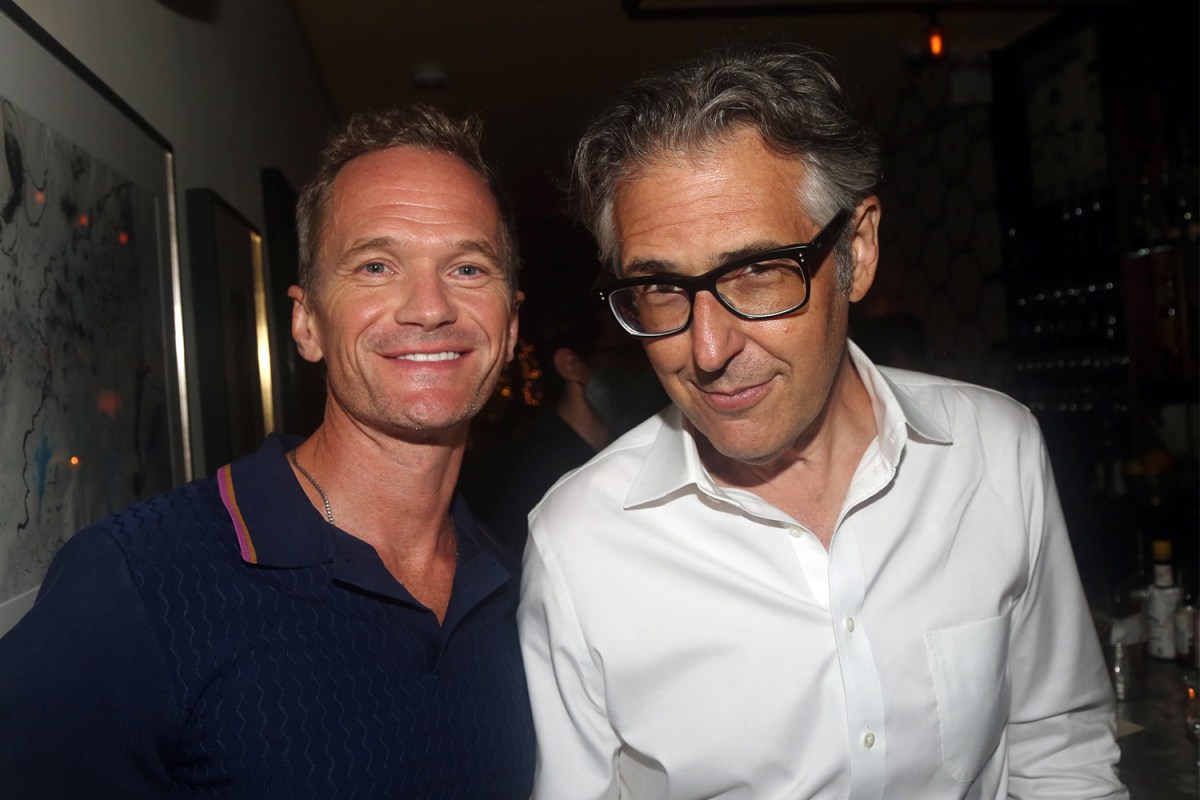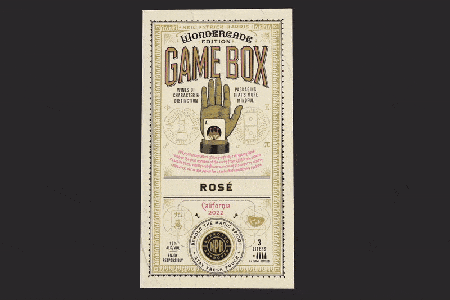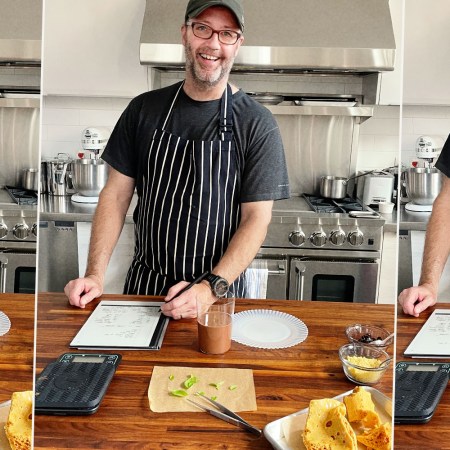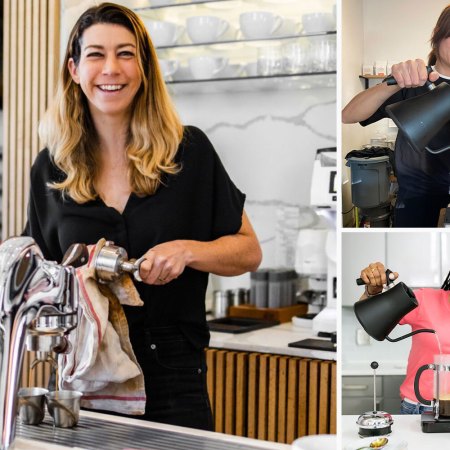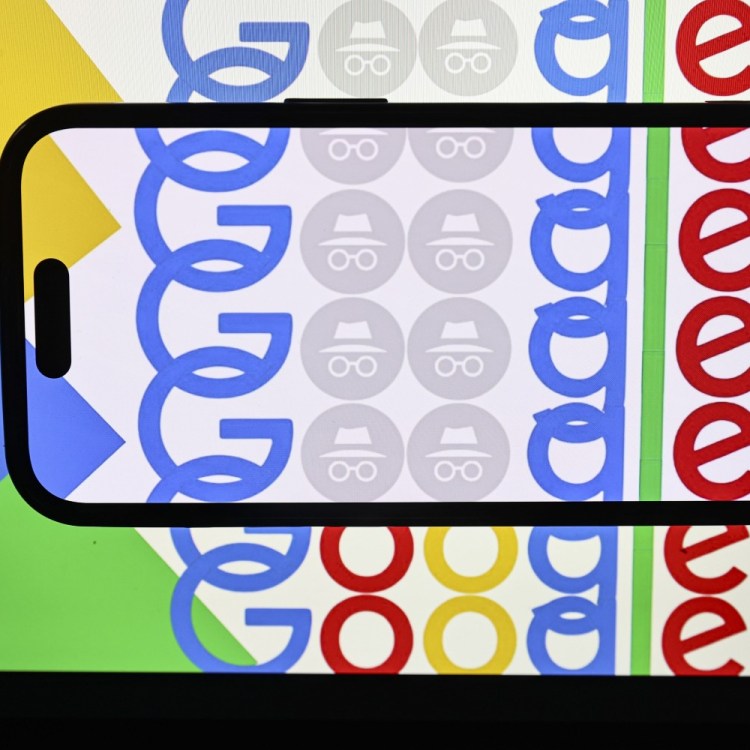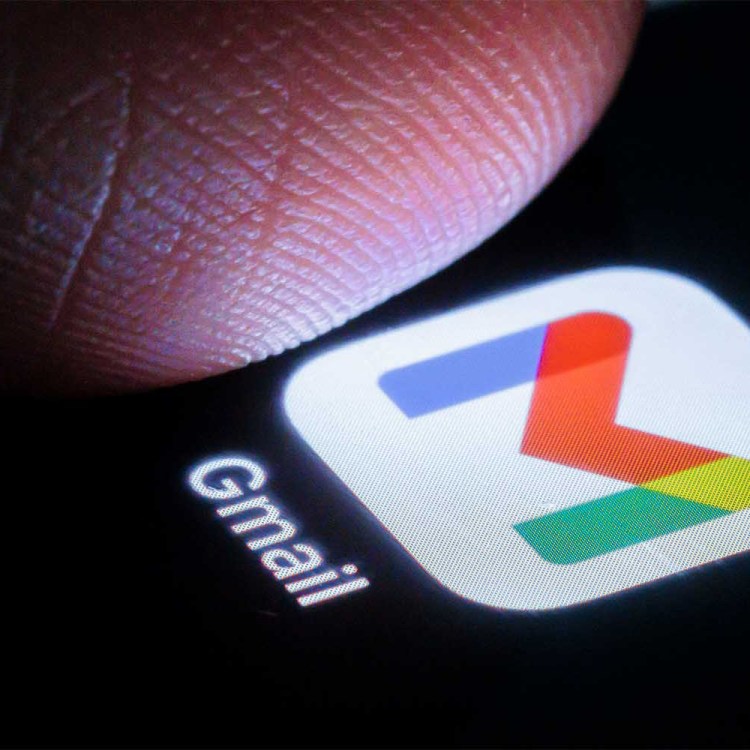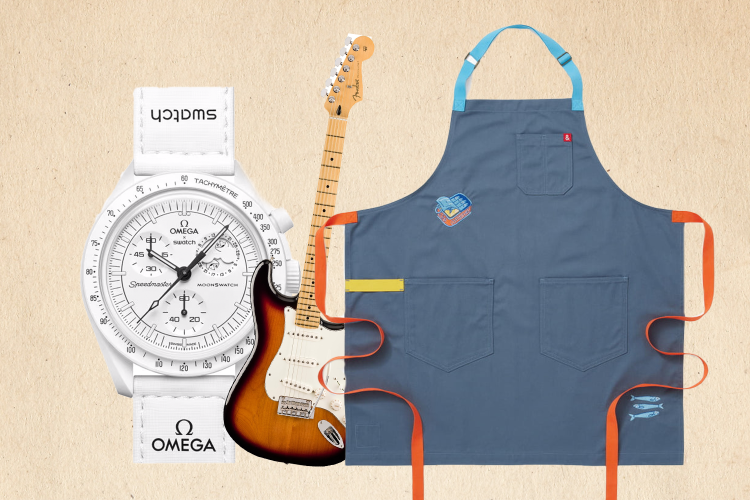This story is an exclusive from Wondercade, the newsletter from Neil Patrick Harris produced in partnership with InsideHook Studios. You can sign up — for free — to receive it right here. NPH personally guarantees it’ll be the best thing you’ve ever done.* (*Give or take lots of other stuff you’ve done.)
ONE. HUNDRED. ISSUES. (I’ve been told that I, myself, have many dozens of issues, but Wondercade hitting triple figures is an entirely different thing altogether. Or so my therapist says.) It’s an understatement to say that I am absolutely humbled, proud, grateful and totally effing stoked to reach this momentous milestone.
In other words…it’s time to celebrate. Yes, that is a bottle of champagne in my pocket, and I’m happy to see you.
The number 100 holds so much gravitas because it marks the entrance into triple-digit-hood. There are also all kinds of positive sentiments and cultural touchpoints tied to the number 100: You “keep it 100,” for example. You “give it 100%.” You do, per my trainer’s suggestion, 100 squats a day “for an ass that won’t quit.” And then there’s this thing my kids text me: 💯.
And so, we’re pulling out all the stops: public radio and podcasting giant Ira Glass, host of This American Life, is here. He’s one of those rare talents who is among the very best in the world at what he does. He’s a true innovator and a source of inspiration — not to mention completely brilliant, funny as hell and totally charming. We got together for a Zoom chat last week to discuss the art of storytelling (among many other topics, as you’ll soon see) and I’m thrilled to share it with you. -NPH
Neil Patrick Harris: You started your radio career as a 19-year-old intern, worked in a number of roles at NPR for the next 17 years, and then started This American Life 25 years ago—
Ira Glass: Almost 30!
NPH: Wow. Almost 30. What an impressive number, Ira! And by the way, we have another cool number today: This conversation will be the centerpiece of Wondercade issue number 100. A milestone of Wondercade-ness. Onehundercade. First off, thank you for being a part of it. And second, you wrote me the most lovely email a couple of months after Wondercade had first launched.
IG: Well, I meant it sincerely. At the time that you started, it felt like we were still in kind of a very dark Covid/post-Covid period. And I felt like you were counterprogramming the entire culture. To have something out there that was just out for fun and just said, “Let’s remember we can appreciate the world,” was a joy and relief to see.
NPH: I’m thrilled to hear that. Thank you. But I’d love to talk about your work. What is the secret sauce to This American Life? How do you go about making your show unique and how do you define uniqueness for yourself within what you do?
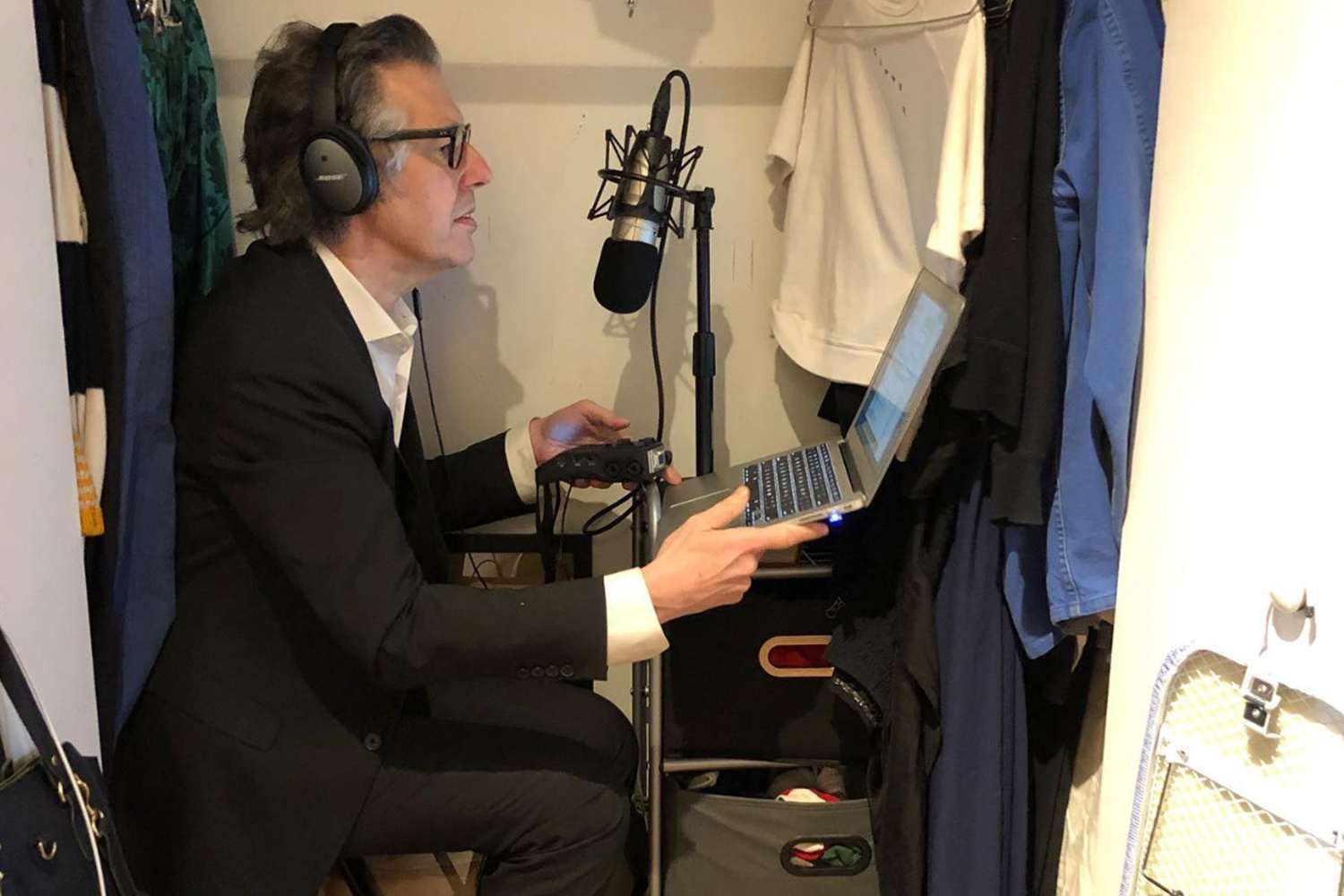
IG: The ideal version of our show is the structure of a classic Broadway show: it’s funny at the beginning, then the stakes emerge and then it’s sad at the end. And it’s funny, because I was doing journalism at NPR and was on All Things Considered, I was like, “I don’t know…these stories don’t have this feeling that I think they should have.” Finally, I came to the format that we use in our show. And I realized in retrospect that, “Oh, it’s Fiddler on the Roof!”
NPH: I played the butcher Lazar Wolf in the La Cueva High School production of Fiddler on the Roof.
IG: That’s a great part, actually. His heart gets to break and he gets to express it later in the show. He gets to carry his bitterness into the wedding.
NPH: And he gets to dance. L’chaim! I’m curious about This American Life behind the curtain: How often do you spend, say, four weeks or two months on a story, [then] it goes in a different direction and is less interesting now. Do you abort?
IG: It happens all the time. We easily kill like a third of all the stuff we start.
NPH: Wow.
IG: All you do is kind of suss out as best you can: “Here’s what I think is gonna happen, and here’s what I think the plot is, and here’s where I think it goes.” But then you have to do the first interview, and sometimes the plot doesn’t pan out. Though sometimes what you find is so much better than what you guessed. You go out in the field, and you find something that’s even better than you could have thought of.
NPH: That’s lucky! Speaking of plot…how does one become a great storyteller? That’s the big-ass question.
IG: I think it’s different for different people. Like, in real life, I was not and am not a good storyteller. So, in my 20s, I just did a bunch of experiments at how to do stories about everyday people until I came up with something that I thought was compelling. I just wanted to do stories about everyday life. But it wasn’t clear how to do it in a way where it’d be interesting — I wanted to make something where you hear the first minute, and you feel like you have to hear the second minute.
Story is about motion. We’re doing this beat and that leads to this next thing, and that leads to this next thing; and then in this beat, we’re gonna learn this about the person; in this beat, we’re gonna establish this person actually does have a heart, even though they seem like they’re a monster. And anywhere that you can kind of point to some bigger thought about the whole thing that they’re going through, that’s great. You wanna just notice the feelings along the way, because plot exists to generate empathy and feeling, and so if you’re going to — there’s a really noisy cart rolling down the hallway in this hospital.
NPH: I thought this was your living room. You’re in a hospital right now? Wow, I thought your house was gigantic.
IG: For anybody who’s seeing this on video, I’m in Baltimore and my dad is in the hospital, and so I’m doing this from the lobby. But, going back to storytelling: You want to be aware of when the feelings are in the story, and then you wanna talk to the person about what their feelings are. You wanna be awake to that. Generally, for radio, because it’s all audio and we’re not seeing their faces as they’re talking to us, we really have to ask people, “What was that like for you? How’d you feel? What’d you think?” And we’ll try that at different points in the story, at points where it feels very powerful. And then there’s certain points — very much as though you were making a movie — when something happens to the main character, you just have to see how it affects them, so that we can feel it in the audience, too.
NPH: The This American Life TV show only ran for 13 episodes. What happened?
IG: We took it off the air. We asked to be taken off of television.
NPH: Why?
Neil Patrick Harris: I Made a Wine! Drink It!
The actor debuts a rosé that comes in a puzzle-and-mystery-covered boxIG: It was too much work. And honestly…okay, so this is gonna sound bratty, but the audience is so small on television compared to the radio audience. [laughs] I mean, I know that’s an obnoxious thing to say, and I didn’t say it at the time, and I don’t think I’ve said this publicly, but this is Wondercade!
NPH: Nice.
IG: But yeah, we were doing great for Showtime and we won them Emmys and they loved us and we loved them. We had a wonderful experience with them. I would work again with them in a second.
NPH: Same. Uncoupled season 2 plug! Okay. Back. [laughter]
IG: And they were so happy to keep us going, but our audience in a given week was like a quarter million people, maybe a half million people — and on the radio, we’re over 4 million. So it just felt like we’re knocking ourselves out for this audience that was so much smaller. And then artistically, I feel like the stories were really pretty, but I think as a television show, we aren’t as special. I think as a radio show, we’re really special and unusual.
NPH: I totally hear you. I’m a huge listener of audiobooks and podcasts. I think the fact that it allows you to just listen — perhaps as you work in the garage or drive a car — makes the creative aspect very singular.
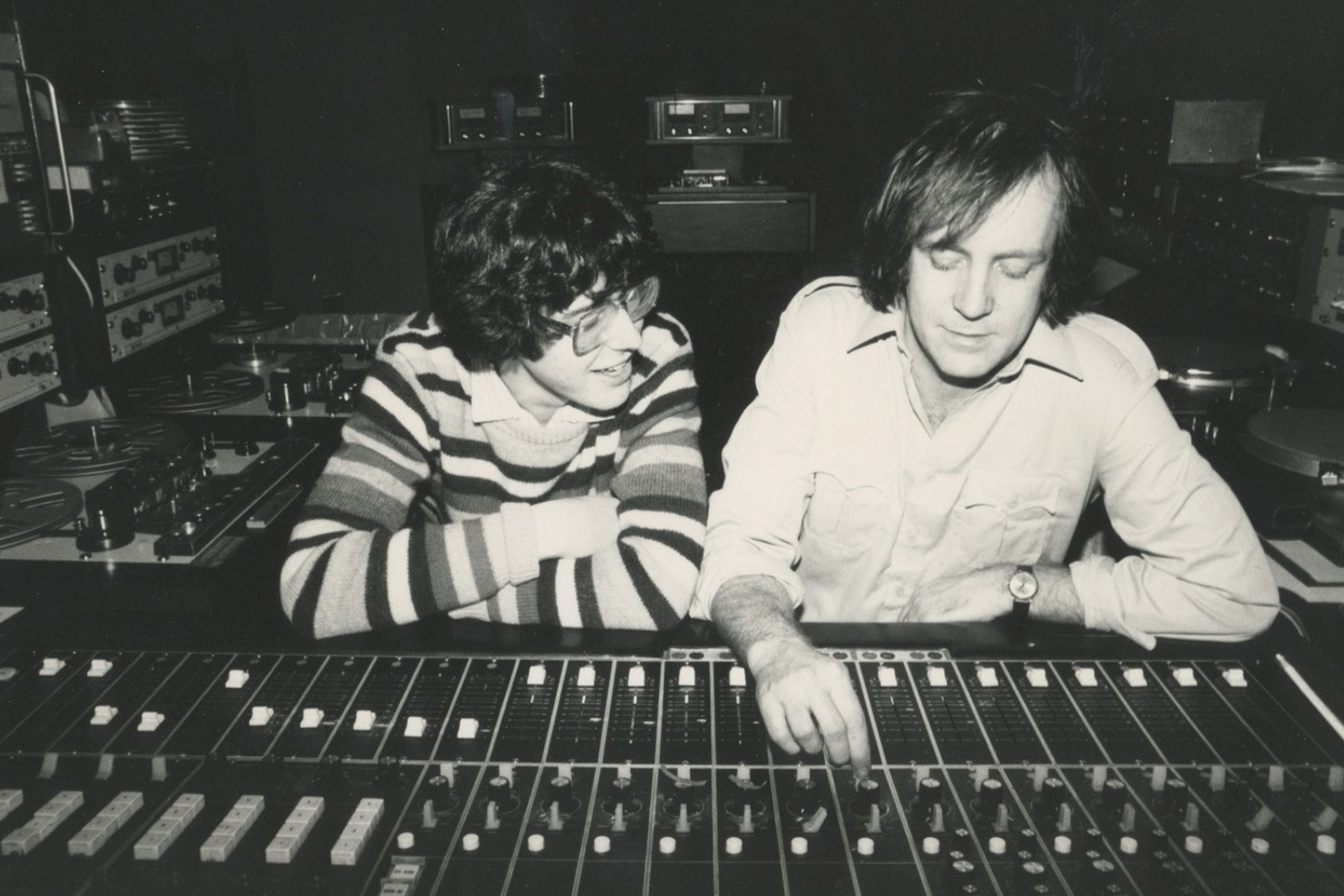
IG: Can we talk about Wondercade for a second?
NPH: Of course.
IG: I think the most exciting interviews are the ones when you interview somebody who you have something in common with. Like when you interviewed the new Doogie Howser, we’re getting a glimpse into you, too, and we see you talking in a sincere way. Like when you see a Broadway play, you see it with different eyes than I do, because you won a Tony Award for Best Actor! And you’ve been in lots of plays! You have thoughts about how things are staged, when pacing works…. And since you can talk about that kind of stuff knowledgeably, it’s fun to read.
NPH: Speaking of Doogie Howser, you being at a hospital is a little triggering for me right now. [laughs] It’s bringing me back to my past.
IG: I’m in the hospital now because of my dad, but when I was a teenager, I worked in a shock trauma unit for most of the summer when I was trying to figure out if I was gonna be pre-med and be a doctor, or if I was gonna be a journalist. So when I come into a hospital, with all the people walking around in their scrubs, it feels so familiar and comfortable to me. And being in one the past few days, knowing I was gonna talk to you, I was wondering: when you go into a real hospital, do you have that kind of “this is so familiar” feeling?
NPH: I absolutely do. We filmed at 20th Century Fox on a soundstage that was essentially a big, giant square, and it had hallways that connected, so you could do one long walk and talk and keep making right turns. It felt like you were very much in a hospital. And so, although most people enter a hospital and are already struggling and are traumatized because they don’t often go to one, I go in and I feel very secure and very safe. It’s not like I’m home, but I’m not rattled by it all. In fact, it is a calming, soothing kind of sensation for me, for sure.
I have a question for you about Wondercade, which may in fact really be a question about This American Life: Do you think there’s value in every issue being a themed issue? Or is it okay if some of them are just two or three random acts that don’t need to connect?
IG: They 100% don’t need to connect, it doesn’t matter.
NPH: But yours do.
IG: Mine do. But in mine, we have to be able to say, “Here’s why we put this story on the air this week,” so the theme is just a MacGuffin. Sometimes the different stories talk to each other in a deep way and there is resonance between them. But in a lot of episodes, there’s not. Sometimes they are just a collection of stories that we could get together that week that sort of relate to each other. We know that each one is kind of fun to listen to, and all the theme does is let me say, “Here’s why we’re telling you this story now.”
NPH: Okay. I appreciate this all very much. Now that I’ve absorbed every morsel of knowledge you’ve given us, let’s shift gears and play a game. Let’s do a lightning round. I’m gonna fire off a bunch of quick questions which require quick answers. Ready?
[laughter]
IG: Okay, I’m ready.
NPH: Please use two NPR show names in a sentence. For example: “Looking at the past decade or so, All Things Considered, our political polarization is destroying This American Life.” Go.
IG: [laughs] Wait Wait… Don’t Tell Me that this airplane has no Fresh Air!
NPH: Very good! Next question: If video killed the radio star, what did the internet kill?
IG: The entire star system. Anybody could be a star.
NPH: Good answer. True or false? You have a face for radio.
IG: Me? Radio is a big tent, Neil. So yes. I have a face for radio, and so does everyone else.
NPH: Well said, handsome man. Okay, I’m gonna provide you with 5 NPR stations’ call letters. You tell me the city.
IG: Look at all the work you guys went to. Jesus Christ.
NPH: WBEZ.
IG: Chicago.
NPH: Very good.
IG: That’s too easy. Don’t pander.
NPH: KANW.
IG: KANW. I have no idea of that one. Is it Kansas?
NPH: Albuquerque, New Mexico. My hometown. WILL.
IG: Indiana. It’s Indianapolis.
NPH: It’s Urbana, Illinois.
IG: Champaign-Urbana!
NPH: WOOT.
IG: Don’t know that one.
NPH: It’s fake. I just wanted to say the word “woot.”
IG: That should be Fort Lauderdale. [laughs]
NPH: The Spring Break Party Capital! “Good afternoon, listeners, this is WOOT, your Fort Lauderdale, Florida NPR station. For all pledges over $100, you will get a WOOT, WOOT!”
Oh and before we wrap, one last note to all the Wondercade readers: Donate to your local public radio station! Here’s how.
This article was featured in the InsideHook newsletter. Sign up now.
